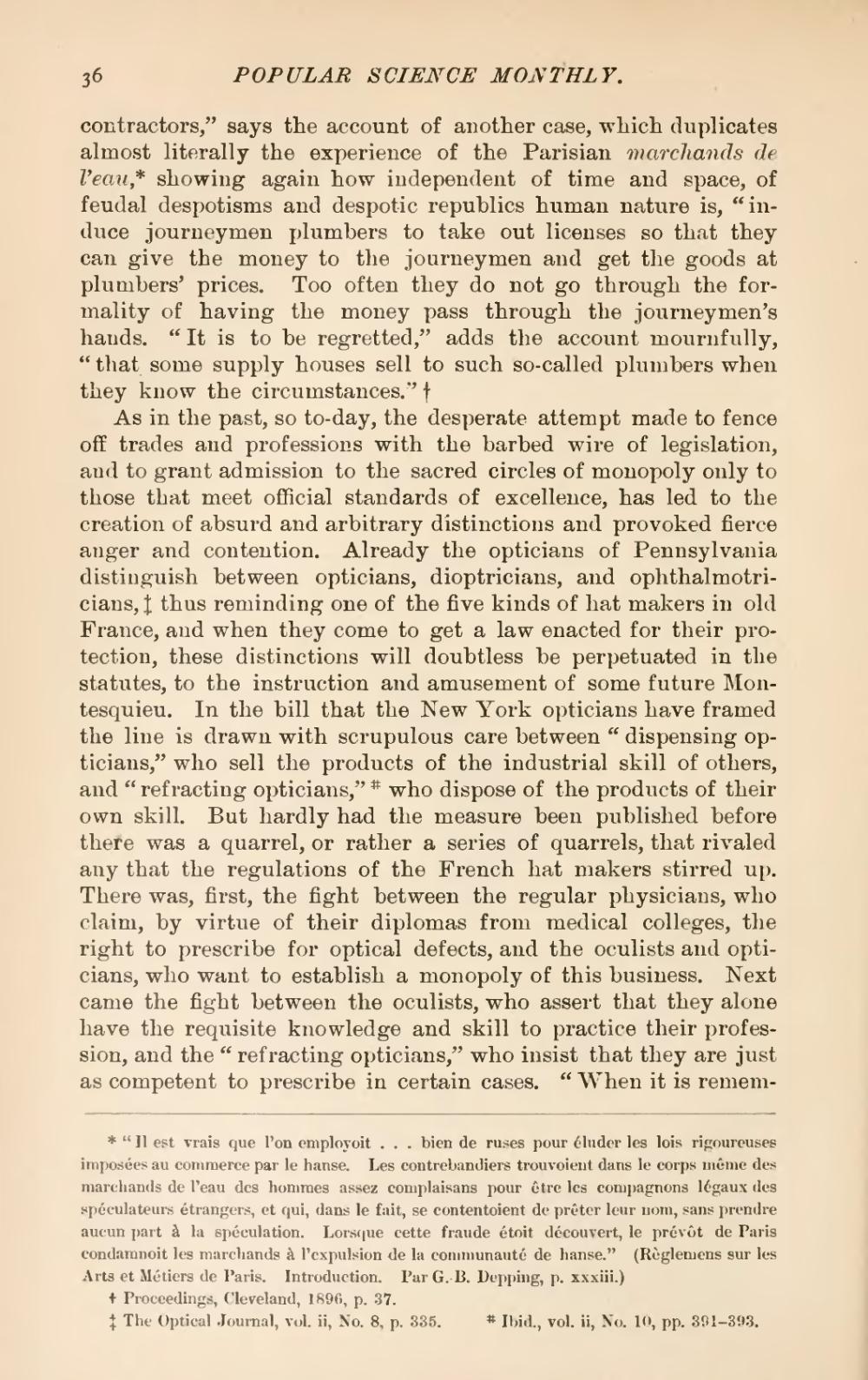contractors," says the account of another case, which duplicates almost literally the experience of the Parisian marchands de l'eau[1] showing again how independent of time and space, of feudal despotisms and despotic republics human nature is, "induce journeymen plumbers to take out licenses so that they can give the money to the journeymen and get the goods at plumbers' prices. Too often they do not go through the formality of having the money pass through the journeymen's hands. "It is to be regretted," adds the account mournfully, "that some supply houses sell to such so-called plumbers when they know the circumstances."[2]
As in the past, so to-day, the desperate attempt made to fence off trades and professions with the barbed wire of legislation, and to grant admission to the sacred circles of monopoly only to those that meet official standards of excellence, has led to the creation of absurd and arbitrary distinctions and provoked fierce anger and contention. Already the opticians of Pennsylvania distinguish between opticians, dioptricians, and ophthalmotricians,[3] thus reminding one of the five kinds of hat makers in old France, and when they come to get a law enacted for their protection, these distinctions will doubtless be perpetuated in the statutes, to the instruction and amusement of some future Montesquieu. In the bill that the New York opticians have framed the line is drawn with scrupulous care between "dispensing opticians," who sell the products of the industrial skill of others, and "refracting opticians,"[4] who dispose of the products of their own skill. But hardly had the measure been published before there was a quarrel, or rather a series of quarrels, that rivaled any that the regulations of the French hat makers stirred up. There was, first, the fight between the regular physicians, who claim, by virtue of their diplomas from medical colleges, the right to prescribe for optical defects, and the oculists and opticians, who want to establish a monopoly of this business. Next came the fight between the oculists, who assert that they alone have the requisite knowledge and skill to practice their profession, and the "refracting opticians," who insist that they are just as competent to prescribe in certain cases. "When it is remem-
- ↑ "Il est vrais que I'on employoit … bien de ruses pour éluder les lois ripoureuses imposees au commerce par le hanse. Les contrebandiers trouvoient dans le corps mème des marchands de I'eau des hommes assez complaisans pour être les compagnons légaux des spéculateurs étrangers, et qui, dans le fait, se contentoient de prêter leur nom, sans prendre aucun part à la spéculation. Lorsque cette fraude étoit découvert, le prévòt de Paris condamnoit les marchands à l'expulsion de la comnmnauté de hanse." (Règlemens sur les Arts et Métiers de Paris. Introduction. Par G.B. Depping, p. xxxiii.)
- ↑ Proceedings, Cleveland, 1896, p. 37.
- ↑ The Optical Journal, vol. ii. No. 8, p. 335.
- ↑ Ibid., vol. ii. No. 10, pp. 391-393.
